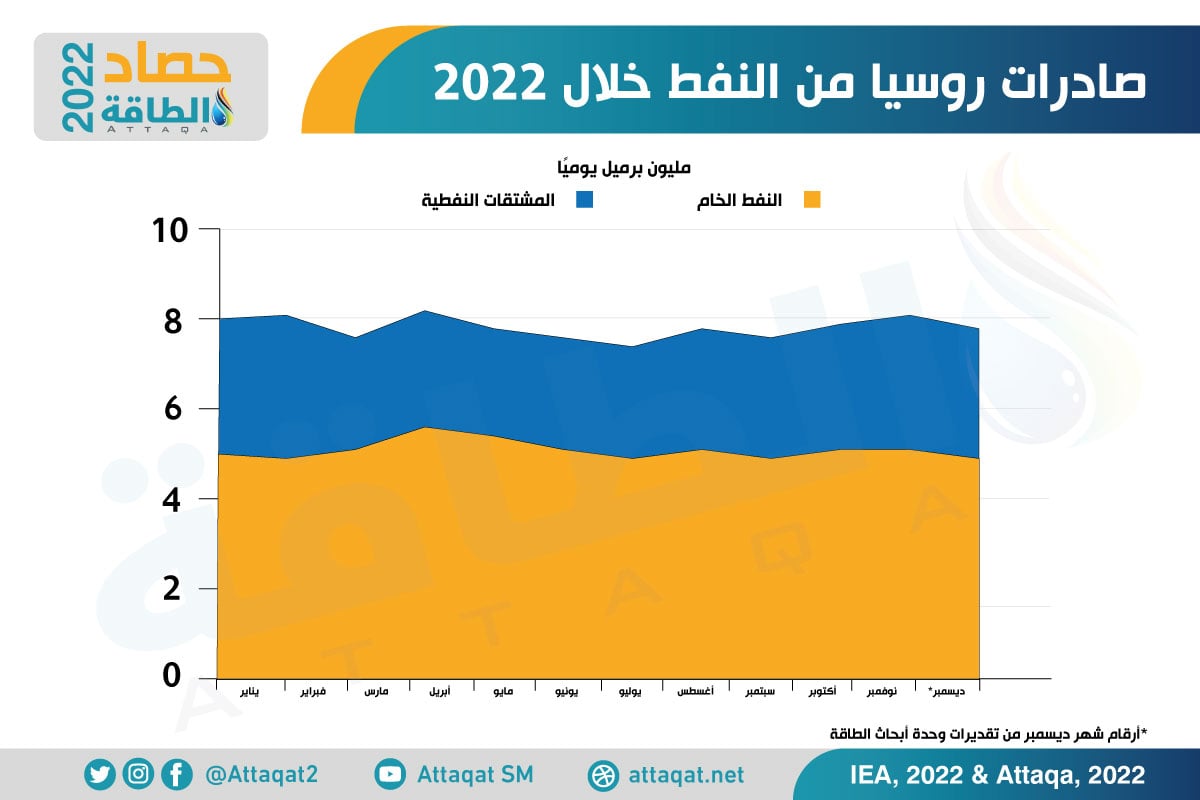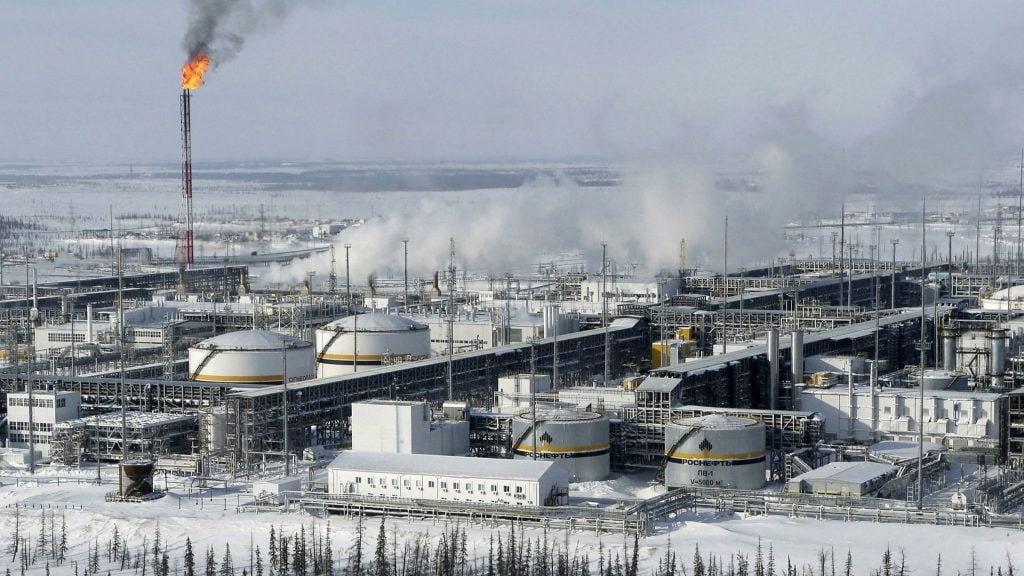Russian refining companies have fallen into a huge crisis, after Russian diesel has been included in the European ban list since February 5, 2023, as part of the tightening of sanctions imposed on Moscow.
Although observers expect Moscow to resort to the option of reducing production in response to the sanctions, Russian companies will not significantly reduce their production or refining capabilities during March 2023, according to the Russian news agency “Tass”.
Russia was forced to sell crude oil at cheap prices to India, China and other countries, since the European and Western sanctions imposed on Russian seaborne exports, starting from December 5, 2022.
It is expected that Russian oil derivatives exports will be affected by the new sanctions imposed since February 5, 2023.
Maintenance season is coming
Despite the passage of a month since the European ban, some energy research centers do not expect Russian refiners to significantly reduce oil refining volumes during March 2023.
The Russian Energy Development Research Center expects significant changes in refining volumes, starting in April 2023, with the start of the spring maintenance season for refineries each year.
An analytical report issued by the center suggests that Russian refiners will continue to maintain refining volumes, if they are able to penetrate new foreign markets.
The demand for Russian oil derivatives is increasing more than crude oil, which means that refinery companies will not suffer the same crisis experienced by companies producing Russian crude oil since the European embargo in December 2022.
Russian oil wash
Also, Russian oil derivatives can pass to the countries of the world through crooked routes that Russia masters, as well as Iran and Venezuela, and before them Iraq, within the framework of what is known as the phenomenon of oil laundering and circumventing international sanctions, according to international energy expert Dr. Anas al-Hajji.
The European Union and the Group of Seven set a price ceiling for the purchase of Russian oil derivatives ranging between 45 and 100 dollars per barrel, which may force Russian refiners to offer generous discounts, as they did with crude oil, which fell under a sanctions ceiling of no more than 60 dollars per barrel.
And Russian seaborne oil exports fell sharply over the past week, coinciding with the weakness of Moscow’s ability to continue record flows to the country’s ports in the Pacific.
A decrease of 500 thousand barrels per day
Russian sea shipments decreased by 500,000 barrels per day, to record 3.11 million barrels per day during the 7 days ending Friday, March 3, 2023, a drop of 14% on a weekly basis, according to Bloomberg.
Russian oil is still transported in large quantities via various tankers competing for its transportation near the Spanish coast, despite the issuance of official warnings to local companies against falling into a prohibited activity.
And it monitored 4 huge oil tankers anchored near the city of Ceuta, with a cargo of nearly 8 million barrels of Russian oil, according to Vortexa, which specializes in tracking the movement of ships and tankers.
Chinese demand for Russian oil has increased during the past weeks in a record way, amid fears that Moscow will resort to plans to cut production, in response to Western sanctions that force it to sell its crude at a cheap price in Asian markets.
The following graphic – prepared by the specialized energy platform – shows Russian oil exports during 2022:

China ramps up buying
Chinese ports are awaiting the arrival of tankers carrying 43 million barrels of various types of Russian oil during March 2023, which is the highest level in the history of Chinese imports of Russian crude, according to Reuters.
The shipments expected to arrive include 11 million barrels of the main Urals crude, and 20 million barrels of the Espoo blend, which is favored by Chinese refineries.
China and India are anticipating the news circulating about the possibility of Russia resorting to cutting production and exports in the coming months, in response to European sanctions imposed on Russian derivatives recently.
If Russia resorts to reducing production, the two largest economic powers in Asia and the world will not get the attractive discounts they used to get in the past, at rates of up to 30% less than world prices.
The concern of Chinese refiners is reinforced by the shrinking of the discount offered on Espoo crude to 7 and 7.5 dollars for next April delivery, compared to about 8.5 dollars a barrel in March 2023 contracts.
Chinese refineries are also afraid of an increase in freight rates on board the ship in the ports of the Baltic Sea, which may raise the costs of Russian barrels in a way that approximates the international raw materials traded in the markets.
related topics..
Also read..

Leave a Reply